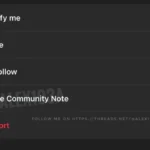The project aims to raise $30 million to develop a social ecosystem atop Bluesky’s AT Protocol.
Social media has become an integral part of modern life, shaping how we connect, communicate, and share information. Yet, as platforms fall increasingly under the control of billionaires and private corporations, concerns about accountability, transparency, and public interest governance have intensified. Enter Free Our Feeds, a groundbreaking campaign with an ambitious mission: to create a decentralized, independent social media ecosystem resilient to billionaire influence.
Backed by a coalition of technology advocates, thought leaders, and high-profile celebrities, Free Our Feeds aims to raise $30 million over the next three years. These funds will support the development of an open, decentralized social media ecosystem powered by the AT Protocol—the same innovative infrastructure behind Bluesky.
Why Free Our Feeds Matters
Free Our Feeds is more than just a campaign; it’s a rallying cry for a social media future that prioritizes public interest over profit margins. At the heart of the initiative is the goal of launching a public interest foundation that will:
- Build and maintain independently hosted infrastructure for social media platforms.
- Ensure that users, developers, and researchers have permanent access to content and data, regardless of corporate decisions.
- Safeguard the decentralized network from being influenced or controlled by private interests.
This vision addresses a pressing issue in today’s digital landscape: the centralization of social media power in the hands of a few billionaires. Platforms like X (formerly Twitter), owned by Elon Musk, and Meta, led by Mark Zuckerberg, have faced criticism for opaque decision-making and changes that prioritize profit over user experience. Free Our Feeds is determined to chart a different course.
The Role of the AT Protocol and Bluesky
Bluesky’s journey began as a research initiative under the leadership of former Twitter CEO Jack Dorsey. In 2021, the project became an independent company, eventually developing the AT Protocol. This open-source infrastructure was designed to enable a decentralized social media ecosystem, allowing for interoperability between various apps and platforms.
Bluesky has already demonstrated the potential of the AT Protocol, launching its own social network atop the framework. The platform has attracted significant funding and a growing user base, but Free Our Feeds believes more is needed to ensure its long-term independence and success.
“Bluesky’s underlying technology, the AT Protocol, could offer a new pathway for the social web,” said Sherif Elsayed-Ali, executive director of the Future of Technology Institute. “Yet, as it stands, it is still venture-capital backed. This important initiative aims to safeguard Bluesky’s underlying technology and put it on an independent pathway, so that the future of social media can be freed from the whims of any one company or group of billionaires.”
Governance and Leadership
To ensure its mission remains grounded in public interest, Free Our Feeds will be guided by nine custodians who will oversee major governance decisions. This diverse group includes notable figures such as Nabiha Syed and Mark Surman of the Mozilla Foundation. Their collective expertise will help steer the initiative toward creating a truly democratic and resilient social media ecosystem.
A Growing Movement Toward Decentralization
Free Our Feeds is part of a broader movement challenging the status quo of centralized social media ownership. Mastodon, another decentralized social network, recently announced a significant shift in its governance model. CEO Eugen Rochko revealed plans to transfer ownership of Mastodon to a nonprofit organization, emphasizing that “Mastodon should not be owned or controlled by a single individual.”
These efforts reflect a growing recognition of the risks associated with centralized control. As platforms like Meta make sweeping changes to content moderation policies and X undergoes radical transformations under Musk’s leadership, users are demanding alternatives that prioritize transparency, accountability, and public benefit.
The Road Ahead
Free Our Feeds faces an uphill battle, but its timing couldn’t be more critical. By investing in decentralized technologies and advocating for public interest governance, the campaign offers a compelling vision for the future of social media—one where users have more control, and platforms serve the greater good rather than the bottom line.
The success of Free Our Feeds could mark a turning point in how we think about social media. It’s a bold experiment, but if it succeeds, it has the potential to reshape the digital landscape, ensuring that social media remains a space for connection, innovation, and shared humanity—free from the influence of billionaires.
As the campaign gains momentum, it serves as a powerful reminder that the future of social media doesn’t have to be dictated by private interests. It can be built by and for the people. And that future starts now.










